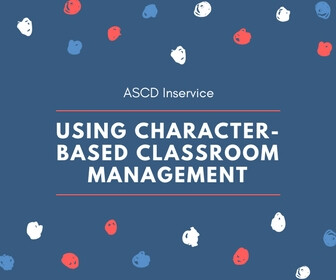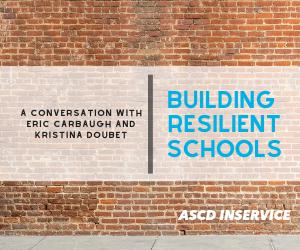“We are not the future, we are the present, and we’re not going anywhere” declared seventh grade student Prishtina Gashi at this week’s event celebrating the release of the Aspen Institute’s National Commission on Social, Emotional, and Academic Development report: From A Nation At Risk, To a Nation At Hope.
The nationally-acclaimed report places a benchmark for how schools can plan for the future and what action to take today to ensure a whole child education.
The Commission’s recommendations ask us all to reconsider how a child’s social-emotional learning aligns to academics. It is, as Tim Shriver, the Commission’s Co-Chair stated, not a choice of either/or, or of teaching academics versus social and emotional development, but an understanding that the development of the Whole Child is at the core to what schools do and must continue to do.
EDUCATING THE WHOLE LEARNER CANNOT BE REDUCED TO A SIMPLE SET OF POLICIES OR PROPOSALS. IT IS, INSTEAD, A MINDSET THAT SHOULD INFORM THE ENTIRE EDUCATIONAL ENTERPRISE.(report p.8)
We at ASCD strongly support this report and its recommendations.
The report adds to the growing call for a more holistic, well-rounded approach to education that places the child at the center. It calls for an education system that addresses – not just accommodates – the social and emotional, as well as cognitive development of the child. It places the role of school back to being environments that ensure students are healthy and safe and wherever possible, invites community services into the school to help provide and support this aim. It continues the demand for removing siloes between sectors, such as education and health, and between services to support the growth and development of the child. It is about rethinking our system of services and supports to reconfigure them to best serve the needs of students.
For instance, the Commission elevates the role of teachers beyond being subject specialists and pedagogical experts, but to also being child and youth development experts. The recommendations call for teachers to integrate social and emotional learning across and throughout the school rather than merely a class or unit lesson. More broadly, there must be a whole school and whole community approach to educating the whole child.
This report aligns with our work and vision in advocating for a Whole Child approach to education and ASCD will continue to showcase how schools have, and are, not just implementing this work but sustaining and embedding it into the fabric of the school’s culture.
ASCD has led the way implementing a whole child approach over the past decade, assisting, supporting, and awarding schools that have been doing amazing work around the Whole Child. For more than a decade, ASCD has been a national leader in changing the definition of educational success from a narrow focus on academic achievement to a more comprehensive approach that supports the whole child so that each student is healthy, safe, engaged, supported, and challenged. We have been in the forefront of changing the incentive structure in accountability systems to incentivize and reward these whole child efforts that culminated in the Every Student Succeeds Act (ESSA) requirement that states include a fifth indicator in their accountability plans. Our Vision in Action: The Whole Child Award has been presented annually since 2010 and has led to state level Whole Child awards now being held across six states.
And this year, ASCD will launch our next venture to ensure that a Whole Child approach becomes the driving educational framework for the next decade. The ASCD Whole Child Network will put into practice many of the recommendations of the Nation At Hope Report. It aims to help schools—their teachers, families, and students—work in unison with their communities, and with other schools across the globe, in implementing and advancing a Whole Child approach to education.
This is a moment in time to remember what is most important in education –the academic success of our students and their physical, social, emotional health and development—and to rededicate ourselves to that goal. We hope you will join ASCD in the pursuit of this worthy goal and purpose.
About the author
Ronn Nozoe is Interim CEO and Executive Director of ASCD.








